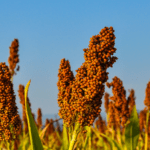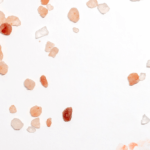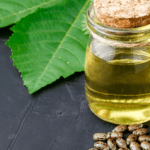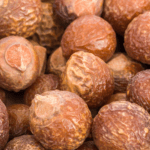SPECIAL DEALS - up to 50% OFF! ![]()
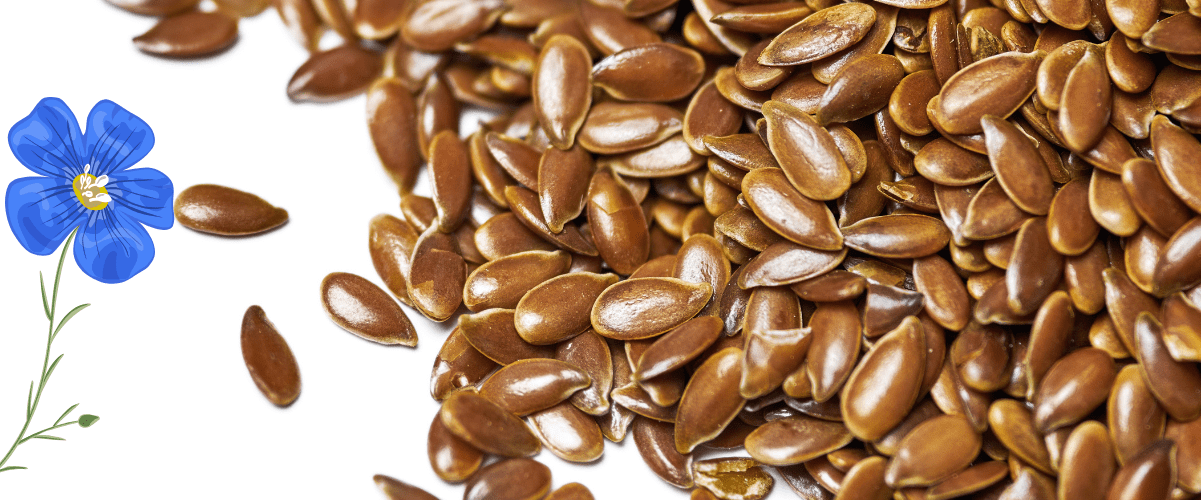
Does Flaxseed Reduce Breast Cancer Risk?
Cancer is a major global health problem with high prevalence and mortality. Breast cancer is one of the most common and deadly cancers. Nutrition plays a crucial role in cancer prevention and treatment.
Lets see if flaxseed reduce breast cancer risk. Flaxseed has been studied for its potential relation to breast cancer. Experimental studies in animals have been conducted, but few clinical trials. Flaxseed is rich in omega-3 fatty acids, lignans, and fibers. Lignans in flaxseed have antiestrogen activity and can inhibit cell growth. Omega-3 fatty acids in flaxseed may reduce breast cancer risk. Flaxseed combined with tamoxifen can reduce tumor size.
Clinical trials suggest flaxseed may decrease breast cancer risk, especially in postmenopausal women. Further studies, particularly clinical trials, are needed to confirm the benefits of flaxseed in breast cancer.
Table of Contents
Various Studies on Flaxseed and Breast Cancer
A study1 examined, the effects of dietary flaxseed on tumor biological markers and urinary lignan excretion in postmenopausal patients, and concluded that Dietary flaxseed has the potential to reduce tumor growth in patients with breast cancer.
Many literature papers on flaxseeds have come to below conclusions2, 3:
- Flaxseed intake may be related to decreased risk of breast cancer.
- Flaxseed can reduce tumor growth and size.
- Results vary among premenopausal and postmenopausal women.
- Higher phytoestrogen intake during adolescence may reduce breast cancer risk.
Below is the excerpt from the paper:
“Observational studies indicate that flaxseed consumption (approximately 32 g/daily) can reduce breast cancer risk. Lignans also contribute to the decrease of breast cancer risk. Vegetarians have a higher level of lignan ingestion, meaning that their breast cancer risk is lower than that of omnivores 3“
One more study5 found that, flaxseed intake is associated with a reduction in breast cancer risk.
It is safe to say adding flaxseeds to one’s diet is of paramount importance especially for women.
Lignans in Flaxseeds
Lignans, which are polyphenolic compounds found in plants, have been extensively studied for their potential anticancer effects. Flaxseeds are the higest source of lignans in the plant kingdon. Epidemiological studies have shown an inverse association between lignans intake and the risk of several cancers 6.
Experimental studies have demonstrated that natural lignans, such as arctigenin and sesamin, have potent antiproliferative activities against various types of human cancer. Lignans have also been found to suppress cancer cell proliferation and interfere with carcinogenesis, tumor growth, and metastasis7.
Furthermore, human microbiota metabolites of dietary lignans, such as enterolactone and enterodiol, have been associated with a reduced risk of hormone-dependent cancers 8.
Lignans have shown antioxidant and anti-inflammatory activities, and their therapeutic potential has been explored in postmenopausal symptoms and various cancers, including breast, prostate, and colorectal cancer9. The molecular mechanisms of lignans in these diseases involve the inhibition of inflammatory signals, such as the nuclear factor (NF)-κB pathway .
Table 1. Major Food Sources of Lignans
| Food | Serving Size | mg/Serving |
|---|---|---|
| Flaxseed | One half cup | 276,040 |
| Sesame seed | One half cup | 95,240 |
| Chickpeas | One half cup | 35,064 |
| Peas | One half cup | 6,057 |
| Chianti, red | 5 ounces | 2,026 |
| Rice, whole grain | One half cup | 1,598 |
| Cabernet sauvignon | 5 ounces | 1,117 |
| Buckwheat, whole grain | One half cup | 737 |
| Oats, whole grain | One half cup | 670 |
| Barley, whole grain | One half cup | 341 |
| Wheat, whole meal | One half cup | 324 |
Lignans in Flaxseeds
Lignans, which are polyphenolic compounds found in plants, have been extensively studied for their potential anticancer effects. Flaxseeds are the higest source of lignans in the plant kingdon. Epidemiological studies have shown an inverse association between lignans intake and the risk of several cancers 6.
Experimental studies have demonstrated that natural lignans, such as arctigenin and sesamin, have potent antiproliferative activities against various types of human cancer. Lignans have also been found to suppress cancer cell proliferation and interfere with carcinogenesis, tumor growth, and metastasis7.
Furthermore, human microbiota metabolites of dietary lignans, such as enterolactone and enterodiol, have been associated with a reduced risk of hormone-dependent cancers 8.
Lignans have shown antioxidant and anti-inflammatory activities, and their therapeutic potential has been explored in postmenopausal symptoms and various cancers, including breast, prostate, and colorectal cancer9. The molecular mechanisms of lignans in these diseases involve the inhibition of inflammatory signals, such as the nuclear factor (NF)-κB pathway .
Ways to Consume Flaxseeds
There are many ways of consuming Flaxseeds.
- Snack: Simply roast them and munch or sprinkle on your salads, smoothies, chutny, or on hot rice as well.
- Include them in your baking like breads and cookies.
Remeber to consume flaxseeds quickly after roasting. Always roast them fresh, that is before consuming.
Consuming sprouted or activated flaxseeds are highly beneficeal due to the increased nutritional content and the bioavailability of the same.
Facebook
Twitter
LinkedIn
WhatsApp
Discover more from Dhatu Organics
Subscribe to get the latest posts sent to your email.

